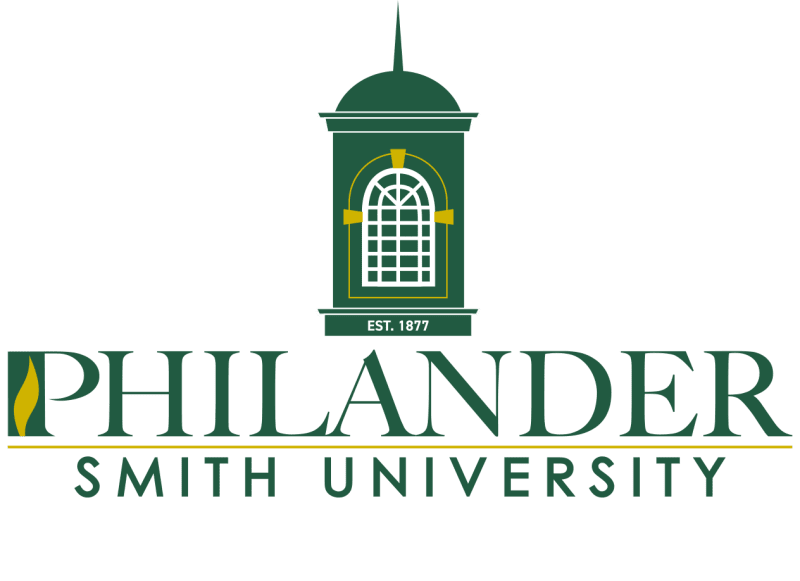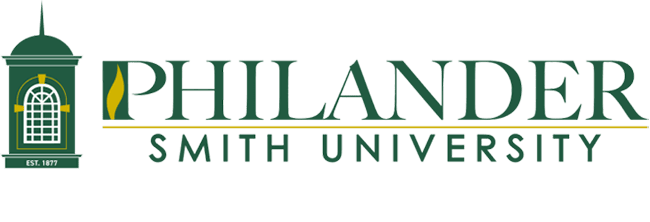CITS Office
The Computer Information Technology Services (CITS) office supports the computers, technology, and infrastructure at Philander Smith University. The office is located on the first floor of the D.W. Reynolds Library and Technology Center. The entrance to the office is to the right of the library office.
Email helpdesk@philander.edu or call 1-866-506-1188 for assistance.
INTERNET ACCESS
Internet access is available at Philander Smith University residence halls, PSU offices, and many classrooms. In order to use the full range of Internet services, you need a PSU access account. CITS provides software and support for Macintosh, and Windows computers. Everyone who uses the Internet access services at PSU has two choices: to connect by a backbone connection or to connect by Pscwireless. A backbone connection is a very high-speed connection to the PSU network and Internet, and may also be referred to as a network, Ethernet, FastEthernet, Gigabit Ethernet, or wireless. Generally, backbone connections are used on campus. If you are on campus, you are using a backbone connection. This type of connection is vastly superior to wireless: its connection rate is a constant 100mb or faster compared to 54mb or less for Pscwireless.
ANTIVIRUS SOFTWARE
New viruses are written and released on a daily basis. Many of the more common viruses "morph" or change frequently to make them more difficult to detect. Viruses spread rapidly and by many different ways (for example, via e-mail attachments; infected document files; Web sites that contain hostile code that can infect your computer through vulnerable browsers; and unprotected file shares). Your computer may be vulnerable to virus attacks if you are not using antivirus and spyware software and updating it regularly.
Important - New computers often come with trial versions of antivirus software. Having two different antivirus programs installed on one computer can cause conflicts. Always uninstall the antivirus software that came on your computer before installing new antivirus software. Unfortunately, no one is immune to malicious programs and intrusions. The fact is, everyone has to do their part so that multiple protections are in place. Although CIS and Philander Smith University departments work to ensure a safe computing environment, every individual who owns a computer must protect themselves as well. Criminals who write malicious software are always looking for ways to overcome defenses, so multiple protective measures are necessary.
SECURITY UPDATES
Relying on the fact that many computer users fail to install software patches on their machines, hackers create worms to take advantage of these vulnerabilities. Most software vendors, including Microsoft and Apple, offer updates to correct security gaps that worms and other malicious programs can use to attack your computer. Running AntiVirus is not enough. You can configure your computer to automatically receive updates for hassle-free security.
FIREWALL
Your Internet-connected computer is probed many times daily by automated attack tools seeking ways to break into and take over your system. Severe attacks may delete important data, crash your system, spawn new attacks, or even steal personal information, such as passwords and credit card numbers. A firewall can help protect your computer by blocking potentially hostile connection attempts. Unit firewalls (firewalls that are designed to help protect multiple computers in a university department, or a home or apartment complex network) and properly configured personal firewalls (firewalls that you can install on your own computer) can each provide effective security to suit various needs. For home use, personal firewalls are often free.
SPYWARE DETECTION
Similar to someone looking over your shoulder and writing down information about what you do online, Spyware (a type of software that is implanted on your computer without your knowledge) secretly transmits information about your online activity and the data stored on your computer. Spyware is often installed as a component of freeware programs, including some Peer-to-Peer applications.
Important - Remember to take caution in downloading freeware or accepting free downloads. As with personal firewalls, there are anti-spyware programs for individual user-machines that help in detecting and cleaning spyware from your system. Such programs are often free for home or individual use. Two common anti-spyware programs are Ad-aware and Spybot.
SECURE PASSWORDS
Just as your PSU Access Account has a password, you will also normally have a password for your computer itself. When you are setting up your computer, it is very important for each of these system passwords to be set by you initially, and that you make them difficult for someone else to guess. A common method by which intruders break into computer systems is through Administrator accounts that have no passwords. Similarly, malicious individuals often enter systems by "cracking" a poor user password, logging in, and exploiting your information and computer access. Therefore, selecting a good password initially and changing it periodically are important ways to avoid having your computer or account compromised.
Passwords should be a mix of letters, numbers and (where possible) special characters, and should never be a dictionary word or any word related to you - for example, your name, your pet's name, your address or phone number.
Important - Your password is the "key" to all the electronic services within the Philander Smith University community. Guard your password just as you guard your bank card PIN. Do not write it down or make it easy for someone to "crack." Never share your password with others.


